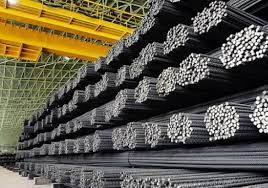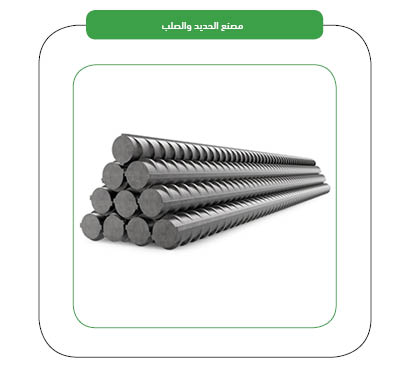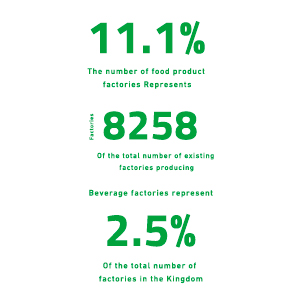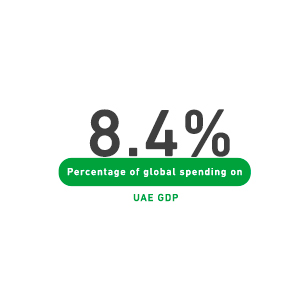An iron and steel plant is a facility that manufactures and produces a variety of iron and steel products. These products include pipes, wires, plates, bars, and strips. Iron and steel plant products play a key role in several important industrial sectors, such as construction, transportation, and others. The project aims to increase economic growth and reduce dependence on imports, and seeks to enhance self-sufficiency, provide job opportunities, and reduce unemployment rates.

An iron and steel factory is a facility that manufactures and produces a variety of iron and steel products. These products include pipes, wires, plates, bars, strips, and others. Iron and steel factory products play a fundamental role in several important industrial sectors, such as: construction, transportation, and others. The project aims to increase the size of economic growth and reduce dependence on imports, and seeks to enhance self-sufficiency, provide job opportunities, and reduce the unemployment rate. Mashroo3k Consulting Company provides a feasibility study for the iron and steel factory project according to the latest international standards, as it reviews the size of supply and demand, the marketing gap, and competitors, in addition to analyzing strengths, weaknesses, opportunities, and threats. It also reviews raw materials and how to obtain them, as well as production lines and financial indicators that are important to every investor, such as the break-even point, payback period, fixed and variable costs, and others; therefore, your project consulting is the best to provide an accredited feasibility study in the Middle East



Use of the finest raw materials.
Utilization of the latest manufacturing and storage technologies.
A team of industry experts and specialists.
A management team with innovative and forward-thinking ideas.
Top-quality products that meet international standards.
Executive summary
Study project services/products
Market Size Analysis.
Risk Assessment.

The Industrial Sector in the Gulf Cooperation Council (GCC) Countries
The industrial sector is considered the cornerstone of the progress of global economies, and its indicators reflect the advancement and development of countries. Without the strength of the industrial sector in some Western countries, these nations would not have been pointed out as role models in the Arab world today. Given the importance of this vital sector, “Mashroo3k” would like to present to you the key highlights of the sector in the GCC countries:
Kingdom of Saudi Arabia:
The number of operating factories is 8,258.
The licensed workforce is 968,121 workers.
The capital of these factories is estimated at approximately 1,256,616 million Riyals.
The largest industrial sectors by number of factories are non-metallic minerals (1,641 factories), followed by rubber and plastic (1,122 factories).
The Riyadh region holds the largest share of factories with 3,332 factories, followed by the Eastern region with 1,877 factories, and the Makkah region with 1,741 factories.
Small factories in Saudi Arabia represent 43.7% of the total number of factories (3,671 factories). These factories employ 111,354 workers.
Medium factories in Saudi Arabia represent 46.6% of the total number of factories (3,907 factories). These factories employ 379,342 workers.
Large factories in Saudi Arabia represent 9.7% of the total number of factories (813 factories). These factories employ 477,425 workers.
There are 1,801 factories under construction in Saudi Arabia. The licensed workforce in these factories is estimated at 78,650 workers. The capital of these factories is 68,481 million Riyals.
The Riyadh region holds 40.4% of the total number of factories under construction (728 factories).
United Arab Emirates:
According to the latest statistics, there are 6,481 factories.
The workforce numbers 737,126 workers.
There are 32,654 establishments in the manufacturing sector.
The value of production in the UAE’s manufacturing sector is 448,127 million AED.
The production of coke and refined petroleum products is the largest industrial sector in terms of production value, with an output of 119,787 million AED according to the latest statistics.
The value of industrial exports exceeds 240 billion AED.
The UAE aims to be ranked 25th in the Global Competitiveness Index for industrial performance, having ranked 38th in previous years.
The country’s strategy supports the creation and establishment of 13,500 small and medium enterprises.
Kuwait:
The number of industrial establishments is 5,539.
The workforce in the sector is 160,654 workers.
The total production value is estimated at 35,929,708 thousand Kuwaiti Dinars.
The number of establishments with 1-10 employees is 4,526, employing 24,048 workers. The total production value of these establishments is 250,322 thousand Kuwaiti Dinars.
The number of establishments with 11-19 employees is 464, employing 6,871 workers. The total production value is 113,126 thousand Kuwaiti Dinars.
The number of establishments with more than 20 employees is 549, employing 129,735 workers. The total production value is 35,566,260 thousand Kuwaiti Dinars.
Qatar:
The number of industrial establishments is 3,467.
The workforce in these establishments is 161,872 workers.
Small and medium industries account for approximately 84% of the total number of operating factories in the country.
The manufacturing sector contributes approximately 9.2% to the GDP.
Establishments with fewer than 10 employees total 1,799, employing 8,305 workers.
Establishments with more than 10 employees total 1,668, employing 153,567 workers.
Sultanate of Oman:
There are 61,217 institutions operating in the manufacturing sector in Oman.
The workforce in the manufacturing sector is 237,000 workers.
The manufacturing sector contributes 9.6% to Oman’s GDP.
31.4% of Oman’s total exports are from the manufacturing sector.
The manufacturing sector has grown at an annual rate of 6% over the past five years.

The Industrial Sector in the Gulf Cooperation Council (GCC) Countries
Kingdom of Saudi Arabia:
The Riyadh region holds 40.4% of the total number of factories under construction (728 factories).
United Arab Emirates:
The UAE aims to be ranked 25th in the Global Competitiveness Index for industrial performance, having ranked 38th in previous years. The country’s strategy supports the creation and establishment of 13,500 small and medium enterprises.
The industrial sector contributes approximately 8.4% to the GDP.
Kuwait:
The workforce in these establishments totals 129,735 workers. The total production value of these establishments is 35,566,260 thousand Kuwaiti Dinars.
Qatar:
The manufacturing sector contributes approximately 9.2% to the GDP.
Sultanate of Oman:
31.4% of Oman’s total exports are from the manufacturing sector.